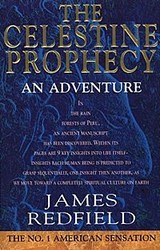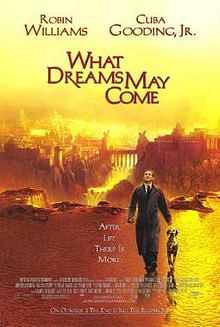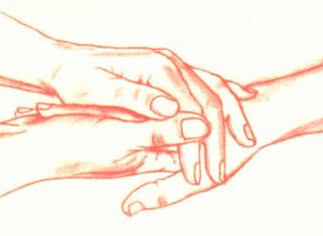Direct knowledge is true wisdom. Sometimes you gotta make the mistakes to learn the lessons within. Yes, change really does begin with you. Better get started.
Very often we are troubled with our own emotions. We have doubts, we get hurt but we are never in despair nor are we destroyed. There is always two sides of the coin and it depends on how our mind would want to put us in. Our free will direct us to where we want our conscious actions to be.
Our state of free will and its possible transgression somehow reminds me of the story of Adam and Eve. When told by God to avoid the forbidden fruit, they chose not to heed but to eat it. It was such an act that caused harm to them. It was such blatant ignorance that led them to slip from God's garden.
Their story is the story of our lives. Like Adam and Eve, we are often made to be at a cross road. We are made to be indecisive. We are drawn towards an irresolute nature. We have to go about to make informed choices to go through life as we see fit. We have to lean forward hoping our actions and reactions shall bring forth just and proper circumstances.
Our behaviour has turned into sociological dilemma. We tend to worry too much. We tend to fret on small thing. We tend to sweat on the small stuff. Somehow, our minds are prisoners to imaginary troubles rather than a victim of the actual ones. We allow ourselves to get all worked up about things that are not really that a big deal. We often champion on little problems and very much blow them way out of proportion.
In the book 'The Art of Happiness', Dalai Lama says "We can see that there are many ways in which we actively contribute to our experience of mental unrest and suffering. Although, in general, mental and emotional afflictions themselves can come naturally, often it is our own reinforcement of those negative emotions that makes them so much worse".
While on vacation in Bangkok, I overhead a couple complaining about the hot weather. How they felt uncomfortable shopping at Chatuchak Weekend Market just after walking through the mazes of shops in less than half an hour. Anyone who had been here would know that the place could be crowded and humid, especially in the afternoon. I heard them still carrying on about it for good fifteen minutes, even while they were having some cold ice cream. They were making actions, still maintaining their high level of discomfort, as if to let all the people around them to know that the weather was 'at fault'.
Here they were on a holidays, surrounded by so many colorful shops and (probably) their choice to be there in the afternoon and all they could do was complain.
Such is a chosen life. When we focus on something that we have no control will only lead to unhappiness, dissatisfaction and frustration. The couple reminds me how such a small thing can spoil such a good mood experiencing the famous weekend market. As I see it, the hot afternoon was all they could remember.
Indeed, it is a shame. We have to learn to ignore such little 'irritant or discomfort' in life for a greater appreciation of the bigger picture. When we can truly internalize a mindset that we should not sweat on the small stuff, we can take a huge step forward towards a life of happiness and peaceful well being. Dalai Lama in 'The Art of Happiness' says "whether you suffer depends on how you respond to a given situation".
I have always reminded myself not to think of 'being happy' but to think of the things that I can do that will bring up the feeling. 'Being happy' is most elusive when we pursue it directly. When I can simplify what I can easily control and doing things that bring higher meaning, I know I shall find the joy when all around me can be a swirling mass of chaos.
Why the mind and our heart are often not in sync? Is it has to do with us being human? Has it got to do with the task to re-member and our lifetime search for meaning? I can bet that I am not the only one confronting the unbalanced force. No matter how much practical personality people have and think of themselves, they end up in innumerous situations where emotions beat out the knowing mind.
Does the heart have a mind of its own? Can a heart think? We are what we think about; we become what we think about. Hence, it is an absolute no.
The mind of the heart reacts from a snowball effect from what we have stored the emotions in the mind. Our mind is an image maker. It stores all kinds of emotional decisions. It paints knowledge and opinions. Basically, the mind is an activity center. It is the 'thinking' that produces and results with our physical and emotional emotions.
The mind of the heart reacts from the consciousness of experiences that we plant in the mind. In Buddhist philosophy, this consciousness of experiences is defined as 'The Feeling Aggregate' which is 'an omnipresent factor of the mind which labels experiences into three categories: pleasant, unpleasant or neutral'.
When a heart is confused, our mind calms it. The mindful process will strive to lead it to the state of equanimity. Our heart will then find us the right way to drive our mind for a reasonable path. Emotional decisions have no boundaries and can go limitless. It is what we store in our mind that will, selectively, accord to a righteous reaction.
This happens because the label of pleasant is given to an object and that results in attachment. However, when the label of unpleasant is given to an object, the result is aversion and sometimes even anger or hatred. In the case when the label of neutral is given to an object, the result is 'we often don't really care' about the object or even ignore it.
How much do we know about our mind? Let's put it to a test.
Here, in the diagram, '1' is the Conscious Level, '2' is the Sub-Conscious Level and '3' is our Body. 'R' is Result.
In this situation (A) ...
Question: Will our body take any action?
In this situation (B) ...
Question: Will our body take any action?
In this situation (C) ...
Question: Will the body take action 'to jog' or 'to sleep'?
If your answer is 'to sleep', you are right.
At the Conscious Level, it is only a knowledge center responsible for logic and reasoning. The Conscious Mind is also known to be the gate keeper for the mind. Here, it makes you to think and to reason with either you accept or reject the ideas. Say, if I try to present you with a belief that does not match your belief system, your Conscious Mind will filter that belief.
Our Sub-Conscious Mind is our power center, it expresses through us in feelings. Whatever thoughts that are planted here will let the body to react. Here is where our habits are stored and formed. People do not do what they know to get what they want, rather they do what they feel in accordance with the conditioned Sub-Conscious mind.
When we are not getting the results we want, it is actually the results of the thoughts that we have put in our sub-conscious mind. Our body moves into action as instructed by our mind. Our body is a medium to express our thoughts and feelings.
We are the reflection of our habits. Somehow, others know us through our habits. Habituation comes in to reinforce our opinions and prejudices. Strictly speaking, habituation is not negative; in fact it can be extremely positive.
However, within the context of problematic emotions, there are habitual causes that effect our reactions in life. We are not doing what we know is not due to the lack, or limitation, of our knowledge. Our emotions come about from our limiting conditioning, habits, attitudes, values and the limiting perception surrounding the circumstances.
Wisely, we need to ask ourselves as how to use the Conscious and the Sub-Conscious mind together? In order for us to achieve higher personal growth, the best thing we can do to ourselves is to understand how both these levels of minds work together and then to take advantage of their combined power.












 I offer Reiki Distant Healing
I offer Reiki Distant Healing